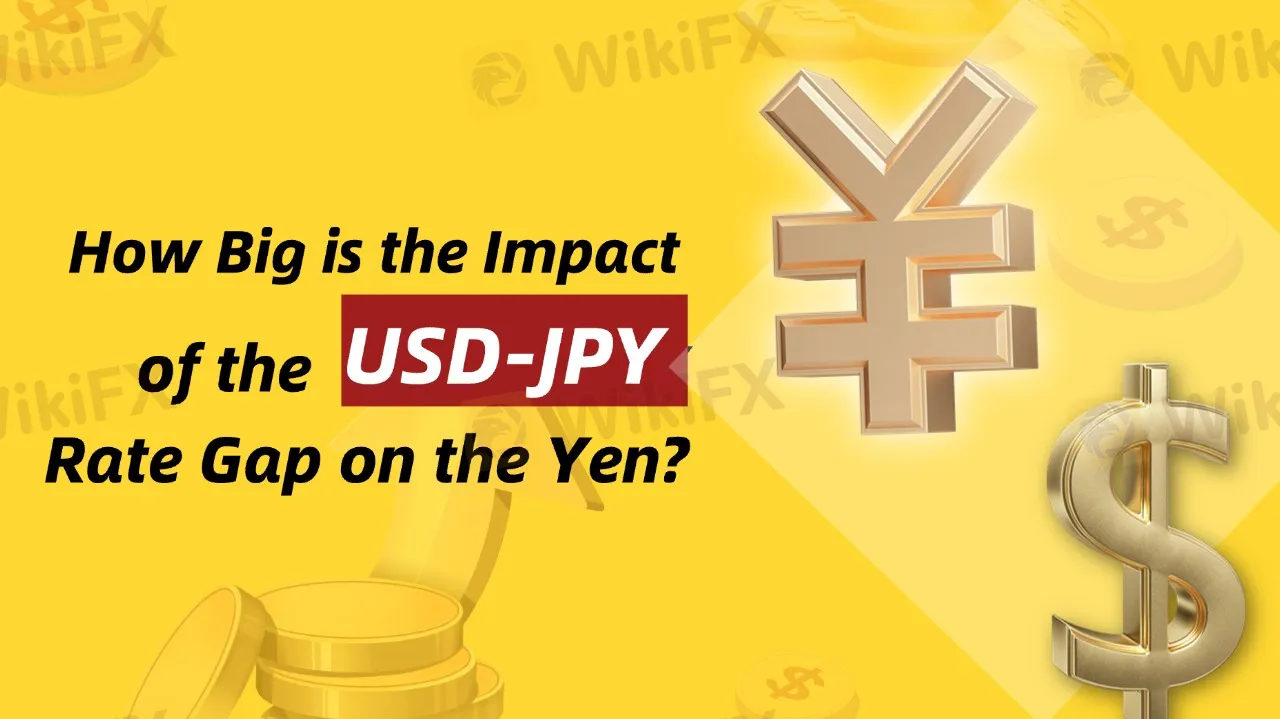简体中文
繁體中文
English
Pусский
日本語
ภาษาไทย
Tiếng Việt
Bahasa Indonesia
Español
हिन्दी
Filippiiniläinen
Français
Deutsch
Português
Türkçe
한국어
العربية
How Big is the Impact of the USD-JPY Rate Gap on the Yen?
Abstract:The U.S. Federal Reserve's repeated rate cuts and the narrowing of the U.S.-Japan interest rate differential are now in sight. So, why is the U.S.-Japan interest rate differential so important for the yen’s safe-haven appeal, especially when global economic uncertainty rises?

Simply put, when the Federal Reserve raises interest rates or the Bank of Japan maintains low (or even negative) rates, the U.S.-Japan interest rate differential widens. In such cases, investors are more likely to shift funds toward the U.S. market, where returns are higher, particularly in the bond market. This leads to capital outflows from Japan, reducing demand for the yen and driving it lower. In this scenario, the yen's safe-haven function weakens because investors tend to seek higher-return assets.
Conversely, when the U.S.-Japan interest rate differential narrows, investors may reduce demand for U.S. assets and shift back to Japanese assets or the yen.
In 2022 and 2023, the Fed's significant rate hikes caused a sharp depreciation of the yen as the U.S.-Japan interest rate gap continued to widen. This weakened the yen's safe-haven appeal, and investors preferred the U.S. dollar as a safer asset.
Looking at 2024, the Fed cut rates in the second half of the year, which should have narrowed the interest rate differential. However, due to the slow pace of rate cuts, it couldn‘t catch up with the speed of the yen’s depreciation, so the effect was limited.
In conclusion, the U.S.-Japan interest rate differential is closely linked to the yen's safe-haven properties. A widening or narrowing of the differential directly affects capital flows and the yen‘s exchange rate. Typically, when the differential widens, the yen’s safe-haven appeal weakens, and the yen depreciates. When the differential narrows, the yen‘s attraction as a safe-haven currency may strengthen, causing the yen to appreciate. Therefore, investors should closely monitor changes in the Federal Reserve and Bank of Japan's monetary policies, as well as global economic and geopolitical risks, when assessing the yen’s safe-haven status.

Disclaimer:
The views in this article only represent the author's personal views, and do not constitute investment advice on this platform. This platform does not guarantee the accuracy, completeness and timeliness of the information in the article, and will not be liable for any loss caused by the use of or reliance on the information in the article.
Read more

The January Effect of 2025 in Forex Markets
Like other financial markets, the forex market is influenced by various factors, including economic data, geopolitical events, and market sentiment. However, one often overlooked factor is seasonality—patterns that recur at specific times of the year. One such seasonal phenomenon is the "January Effect," which can have a notable impact on currency trading.

OPEC's Profound Influence on the Oil Market
At present, oil prices remain relatively stable, but global economic recovery and shifting market demands continue to drive price fluctuations. Amid an uncertain global economic and geopolitical landscape, OPEC’s policies and actions remain key determinants of oil prices.

Think Before You Click: Malaysian Loses RM240,000 to Investment Scam
A manager from Sibu, Malaysia, lost RM240,000 to a fraudulent investment scheme.

What Euro Investors Can't Afford to Miss
For euro investors, geopolitical factors, inflation data, and the European Central Bank's policy direction will determine the market trends over the next few months.
WikiFX Broker
Latest News
PH SEC Issues Crypto Guidelines for Crypto-Asset Service Providers
FTX Chapter 11 Restructuring Plan Activated: $16 Billion to Be Distributed
Think Before You Click: Malaysian Loses RM240,000 to Investment Scam
Share Industry Insights and Discuss Forex Market Trends
Top 9 Financial Fraud Cases in Recent History
KuCoin Pay Introduces Easy Crypto Payments for Merchants
Malaysian Man Killed in Alleged Forex Dispute-Related Attack
How Big is the Impact of the USD-JPY Rate Gap on the Yen?
What Euro Investors Can't Afford to Miss
Is OneRoyal the Right Broker for You?
Currency Calculator






